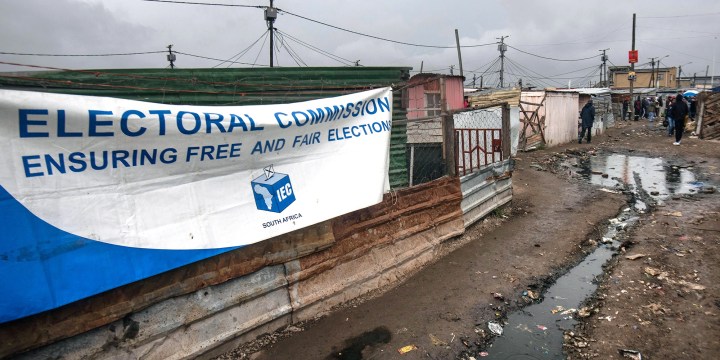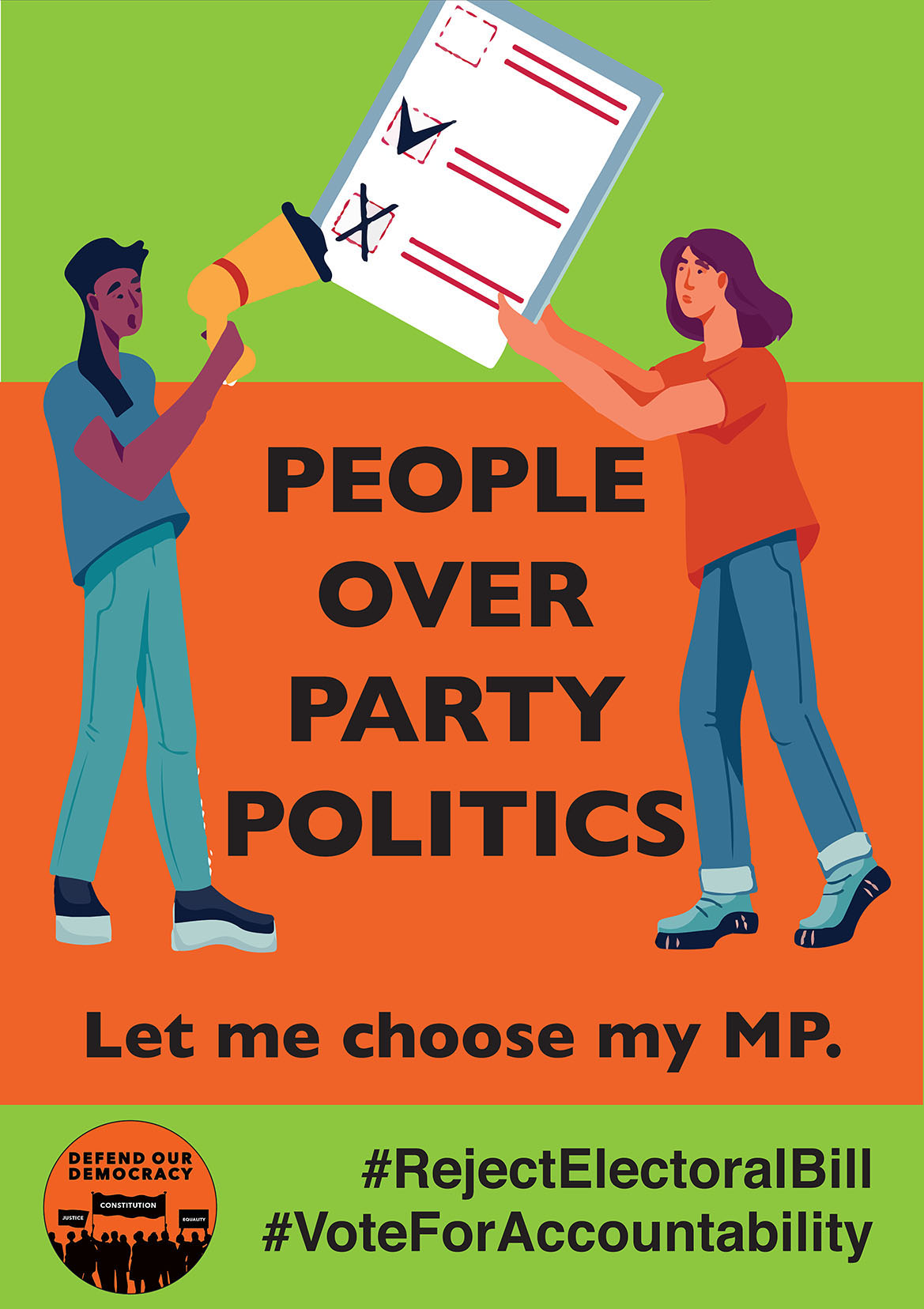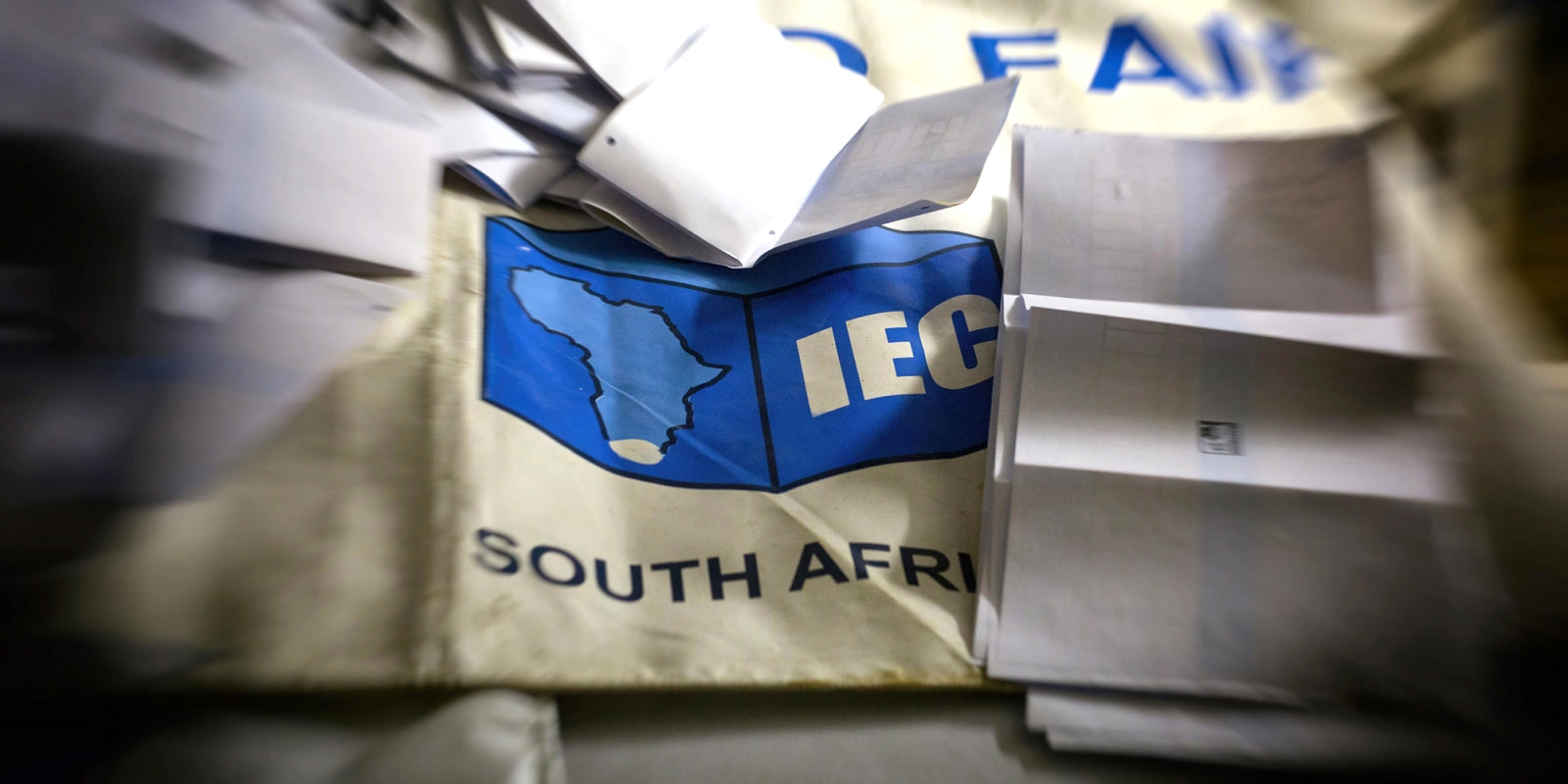TUESDAY EDITORIAL
Do you want to make a difference in the 2024 election? Then the work starts right now

‘We are fundamentally vulnerable when we do not have robust participation in our democracy … we suffer. You get what you organised for (or didn’t)’, Nse Urfot, CEO, New Georgia Project.
This weekend the Rivonia Circle hosted a gathering of approximately 200 activists under the title “mobilising people’s electoral power”.
Read more in Daily Maverick: “Our vote has no value, say despairing South African activists”
With no elections due in South Africa in 2022 or 2023, you might be forgiven for wondering whether the activists weren’t jumping the gun. There are at least 18 months to go before SA’s 2024 general election.
And yet, it’s increasingly clear that in struggles for social justice and human rights that are taking place in countries across the world, waging vigorous, visible and independent campaigns on the electoral terrain is becoming more and more important.
Look at what is happening in the presidential election in Brazil in the contest between Lula and Bolsonaro; watch the mobilisation of activists in the coming mid-term elections in the US through organisations like the Working Families Party and the New Georgia Project; witness the level of discussion already taking place in advance of Zimbabwe’s crucial 2023 election.
Look too at the rise of the far right in electoral politics in France, Italy, Sweden and India.
Then compare it with what happens when social justice organisations get organised to use democratic elections to take on corrupt politicians, leading to the defeat of Edgar Lungu in Zambia and the victory of Gustavo Petro in Columbia.
Neo-fascists are organising. Human rights activists should be too.
With these examples in mind, it becomes obvious that there’s no “too early” moment to start to plan to engage the essence of democracy — free and fair elections — as a way to advance social justice.

The power of the vote
In fact, one wonders why we left it so long. After all, South Africa’s struggle against colonialism and apartheid was at heart a struggle for “one person, one vote”, based on the correct assumption that majority rule, with safeguards against the abuse of power built into our Constitution’s Bill of Rights, is key to equality.
That’s why, looking back, it’s hard to understand why so many principled social justice activists have effectively ignored engaging with electoral politics since the early 2000s. We have been bystanders to the ANC alliance’s politics, maybe flirted with the EFF, bemoaned the DA.
By adopting a passive approach to the elections process we’ve tacitly accepted that millions of people won’t vote and that the people elected to Parliament on party lists won’t ever be accountable to constituencies.
We’ve waited for the state to be captured, made easier by the existing electoral system, rather than voting to prevent it in the first place.
As a result, much of civil societies’ focus has been on the back end of the system, using protest and the judiciary as lines of defence, rather than its front end — parliament and the quality and accountability of people we put there.
No more.
Civil society organisations arguing that we must adopt a different approach to elections are right. It will require a sea change; that’s why the time to start organising for the 2024 elections is upon us.
But what does this mean in practice?
At the Rivonia Circle workshop, an inspiring keynote speech was given by Nsé Ufot, the CEO of the New Georgia Project (NGP). Ufot showed that people are not powerless and democracy isn’t dead — if they organise.
Visit Daily Maverick’s home page for more news, analysis and investigations
Ufot described how the NGP was founded in 2013, driven by the desire to secure social justice for poor and black people in the Southern US state of Georgia. Since then, she said, the NGP has “knocked on two million doors”, “registered 700,000 people to vote”, and affiliated over 1,100 faith-based organisations to its campaign.

Nsé Ufot, Chief Executive of the New Georgia Project in the US. (Photo: Supplied)
As a result, despite a barrage of disinformation and voter suppression by the Republican Party, voters have cut the traditional Republican electoral majority from 250,000 in 2016 to 12,000 in the 2020 presidential election. Crucially, in the 2020 elections for the first time both the Senators elected from Georgia were from the Democratic Party — giving the Democrats a historic and vital majority in the Senate.
If South Africa is to follow suit, some of the challenges we face are:
- Getting IDs for millions of people: without an ID you can’t register to vote, get a social grant, bank account or even a vaccination. Lawyers for Human Rights suggest that there are up to 15 million people (out of 60 million) without IDs.
- Engaging with and listening to young people: There are more than 12 million people between the ages of 18 and 30, but less than 4,5 million of them are registered with the IEC. However, young people are not voting, not because they are “apathetic” but because they don’t trust the system. As Irfaan Mangera from the Ahmed Kathrada Foundation put it: “Young people are engaged in politics, but not in electoral politics.”
- Engaging with and listening to the people most marginalised by our society, namely prisoners, people with disabilities, and the homeless.
- Developing a People’s Manifesto, not just a wish list, that is forward-looking and can galvanise society around the issues that matter to people: education, health, safety, jobs and food.
And in the remains of 2022, there is the pivotal fight around the Electoral Amendment Bill, which all the political parties are unusually united in supporting because it makes it more difficult for independent candidates to challenge the advantages the system gives political parties.
However civil society is fighting back on this front as well. Yesterday a broad press conference that included Defend our Democracy, Saftu, the SACC and others denounced the Bill and promised to campaign against it.
To access Defend Our Democracy electoral reform campaign toolkit, click here.
In the words of Lukhona Mnguni: “The politicians fear meaningful electoral reform because it will dislodge the power of a few who determine list processes in political parties. The biggest victory from the constitutional court’s judgment (in the New Nation matter) is that we now have the ability to crack open the closed party lists for national and provincial elections.”
One thing is clear: from now on, civil society cannot successfully fight for social justice and constitutionalism without becoming meaningfully involved in the 2024 election campaign.
NGOs and social movements cannot successfully fight for health or equal education, a just transition or against corruption, in issue silos. It’s time for official civil society to leave their offices and get into communities, joining up with community activists who are already on the ground fighting on a range of ‘bread and butter issues’.

There is no “too early” moment to start to plan to engage the essence of democracy – free and fair elections – as a way to advance social justice. (Photo: EPA-EFE / Yeshiel Panchia)
‘The fierce urgency of now’
Ufot’s presence in SA was not academic.
She had been invited to help activists in South Africa focus on the challenges the electorate will face in using the vote to take back power from the corrupt politicians and parties who have done so much damage to our country and people.
One message that came through clearly is that if organisations like the Rivonia Circle, Defend Our Democracy, the Working Class Summit and others are to succeed, it can no longer be activism as usual. Changing the culture of democracy will necessitate a broad non-sectarian alliance of tens of thousands of people and organisations, prepared to put the public interest above narrow organisational or ideological interests.
In Ufot’s words: “You build by doing it … you need to be deliberate and intentional.. People are so good with this high-minded conversation about what South Africa needs and how we need to move forward. But when they face the labour of actually doing it they fall back and are challenged.
“I don’t know if democracy is the best system, but it’s the best system we have access to right now. But while we try to imagine and build something new that doesn’t currently exist we need to exploit the system we have now … it’s false to make us think we can only do one or the other.
“This ideological purity shit will get you killed and it’ll have us sitting in these rooms having these same conversations over and over again with the same people who already agree with us.
“And that is not helpful. It’s not how we win.” DM/MC



















Makes perfect sense. How can we help?